When it comes to tooth replacement, there are 3 main options available: dental implants, bridges, and dentures. The best option for you depends on the position and number of missing teeth, and overall oral health. Implants are the longest lasting, but also the most costly option. Bridges are best for single teeth replacement. Dentures are versatile, and usually the cheapest, but are not fixed to teeth, and can become loose over time.
Missing teeth can have a significant impact on a person’s life, affecting their smile, speech, and ability to chew properly. Understandably, people are often concerned about a visible gap in their mouths, and want to know their options for tooth replacement. As a dentist, I work closely with my patients to discuss these options and help to make the best decision for them.
Fortunately, there are several options available for tooth replacement. In this article, I’ll provide an in-depth overview of dental implants, bridges and dentures to help patients understand the benefits and limitations of each approach.
Table of Contents
Do I need to have a tooth extracted?
Your dentist may recommend a tooth extraction for:
- Extensive tooth decay
- Advanced gum disease
- Unrestorable tooth caused by trauma
If a tooth cannot be fixed, or has a poor prognosis, then the healthiest option may be to extract it. This is to avoid the risk of developing pain, swelling or infection from the damaged tooth.
If the tooth is fixable, then an extraction may not be necessary:
- Tooth decay in enamel/dentine can be treated with tooth coloured (composite) or silver (amalgam) fillings.
- If the decay is very deep and extends to the pulp chamber, treatment is more complex. As long as there is sufficient tooth left to restore, a root canal treatment can remove the nerve from an infected tooth, avoiding the need for it to be extracted.
To make an informed decision about your dental health, you can read to compare the benefits and risks of a root canal vs extraction.
Patients with advanced gum disease may develop wobbly teeth. If left untreated, mobile teeth may need extracting, but this can be avoided with early intervention.
Do I really need a tooth replacement?
If you have lost a tooth, you may be wondering if it really needs to be replaced. In some cases, if the gap caused by the missing tooth is not visible, you may choose to accept the space. However, it is important to consider that over time, the adjacent teeth may drift, tilt or over-erupt, and could lead to bite problems.
After a tooth is removed, the underlying gum and bone changes shape as it heals. Dental implants can be an effective way to maintain bone levels and prevent further bone loss.
If the missing tooth is at the very back of your mouth and does not affect the adjacent teeth, or your ability to chew, it may not need to be replaced.
A shortened dental arch concept [1], suggests that a suggests that molar teeth do not need to be replaced for improved function, as long as all front teeth are present: 20 teeth, or 10 pairs of upper and lower teeth.
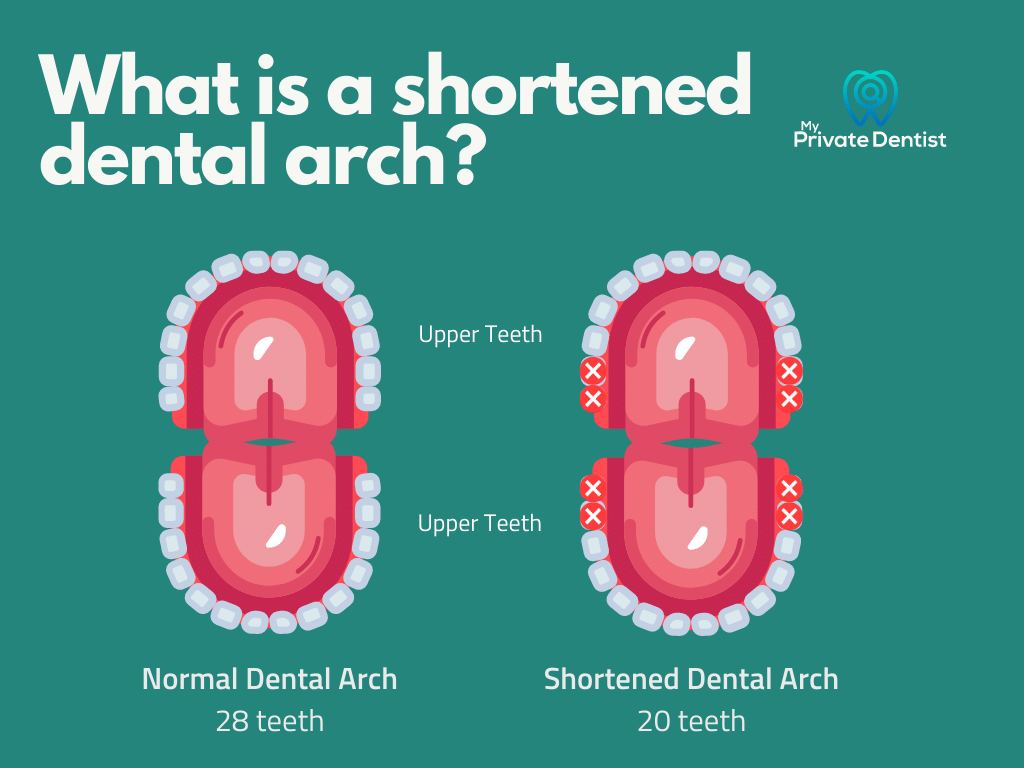
The decision to replace a missing tooth should be made with advice from your dentist, who will assess the potential impact on your dental health and recommend the best course of action for you.
Tooth Replacement Options
Dental Implants
Dental implants are a permanent and natural-looking tooth replacement. A dental implant is a titanium screw that is surgically positioned into the jawbone. This fuses with your bone, and acts as the root of a tooth, to support a crown, bridge, or denture. In this way, dental implants can replace a single tooth or multiple.
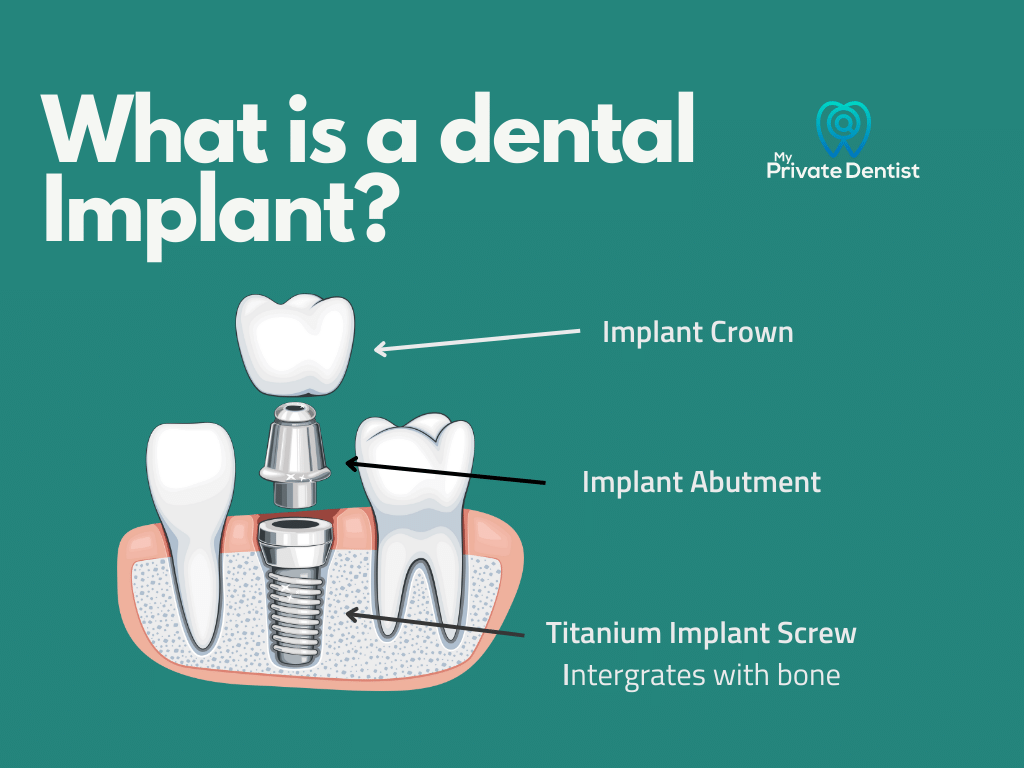
How dental Implants work
Stage 1 Surgical procedure: A dental implant is inserted in to the jawbone.
Stage 2 Healing time: Over 3-6 months after placement, bone grows around the titanium implant, keeping it securely in place. This process is known as osseointegration.
Stage 3 Completion: A crown, bridge or denture can be attached.
Advantages of dental implants
Dental implants offer numerous advantages over traditional tooth replacement options:
They are a fixed solution for tooth replacement, and can last a long time with proper care.
They are highly aesthetic, as crowns are custom made in shape and colour to match the rest of your teeth.
Unlike conventional bridges, implants do not require preparation or support from adjacent teeth, making them a more conservative treatment option.
Implants are versatile, and can replace a single, several or all your teeth with implant supported crowns, bridges and dentures
Limitations of dental implants
Although dental implants are an excellent option for tooth replacement, they do have some limitations.
- Cost: Implants are more expensive than other options such as dentures and bridges. (Find out more about Tooth Implant Cost UK)
- Healing time: Implants require a healing period of several months after placement, before they can be fully functional.
- Surgical procedure: Surgery is needed to place implants, and that carries some risks such as infection, nerve damage, and bleeding.
- Maintenance: Implants require regular maintenance, and excellent oral hygiene.
Who shouldn’t have implants?
While dental implants are a safe and effective option for many people, there are some individuals who may not be good candidates for this procedure. These include:
- Under 18s: Dental implants are not recommended for children and teenagers that have missing adult teeth, as their jawbone is still developing. Alternate options such as dentures or bridges are more appropriate until growth is complete.
- Pregnant women: Although dental implant surgery is safe during pregnancy, it is often advisable to delay non-urgent treatment till after baby is born. Sedation is not safe during pregnancy.
- Individuals with certain medical conditions: Certain medical conditions, such as uncontrolled diabetes or autoimmune diseases, can increase the risk of complications during and after the procedure.Taking blood thinning medication, or bisphosphonates is also a contraindication.
- Smokers: Smoking is the leading cause of gum disease, and can cause delayed wound healing. Smokers have a higher rate of implant failure [2].
- Patients with advanced gum disease: Unhealthy bleeding gums, or active periodontitis is a contraindication for dental implants, as they are more likely to fail. It’s important to maintain excellent oral hygiene, and have healthy gums for implant success.
- Inadequate Bone Density: A patient needs enough good quality bone to support an implant. This is assessed with a CBCT, before treatment is carried out. If there is not inadequate bone density, additional procedures such as bone grafts and sinus lifts may be necessary.
How long do dental implants last?
Dental implants are designed to be a long-lasting solution for missing teeth, and with proper care, they can last for many years. Studies have shown a 97% success rate of dental implants after 10 years [3], making them one of the most reliable tooth replacement options available.
The lifespan of dental implants depends on a number of factors, including oral hygiene, the location of the implant, the quality and size of the implant, and the patient’s overall health. However, in general, dental implants are designed to last many years.
Studies have shown that the average lifespan of dental implants is 10-30 years. To ensure dental implants last, it’s important to practice good oral hygiene habits, including brushing twice a day, flossing daily, and visiting the dentist for regular checkups and cleaning. Patients should also avoid smoking, which can increase the risk of complications.
Patients should be aware of any signs of potential problems, such as pain or swelling around the implant, and should seek prompt treatment if they notice any issues.
Cost
On average, a tooth implant cost UK is £2,000-£3,000. There are many factors affecting the price including implant system used, and number of implants required. As treatment is case specific, it is important to have a dental consultation to determine suitability and price. (Read more about the Tooth Implant Cost UK)
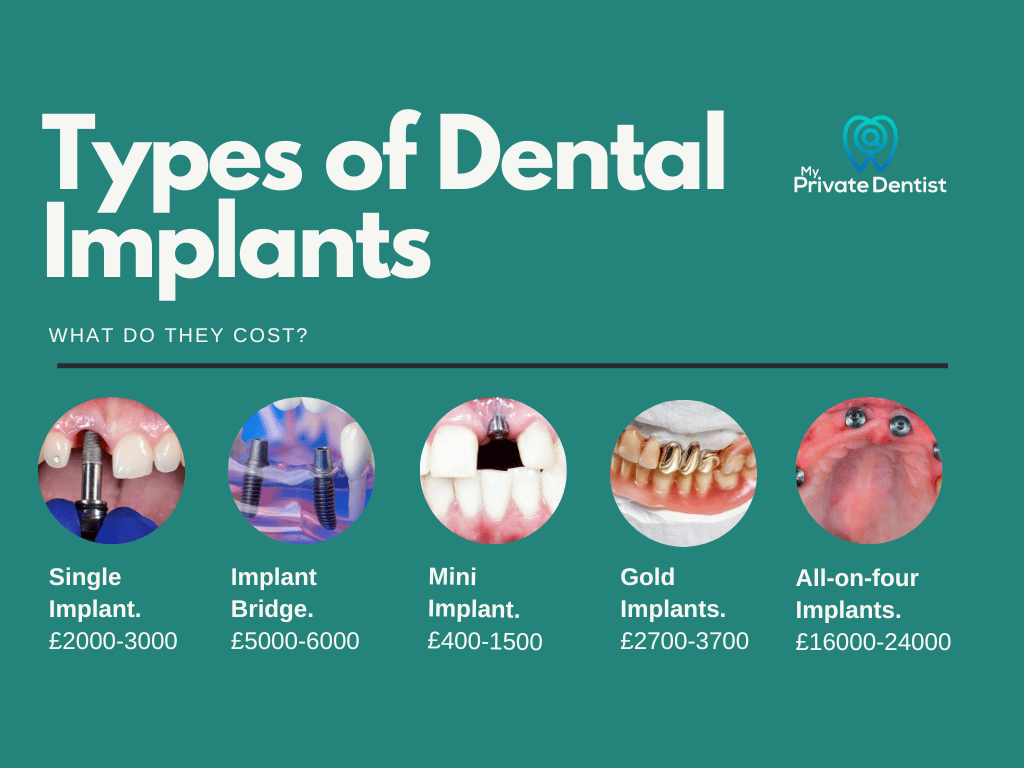
Dental Bridges
A bridge is a fixed prosthesis, that is used to replace one or more missing teeth. It is called a “bridge” because it spans the gap created by the missing tooth or teeth, connecting the remaining teeth on either side. There are two main types of bridge:
- A conventional (traditional) bridge
- A resin retained (Maryland) bridge
A dental bridge consists of one or more artificial teeth (called pontics) that are anchored in place by teeth adjacent to the gap (abutments).
Dental bridges are made using porcelain, ceramic, or metal. They are custom-made to fit the patient’s mouth and are designed to look and feel like natural teeth.
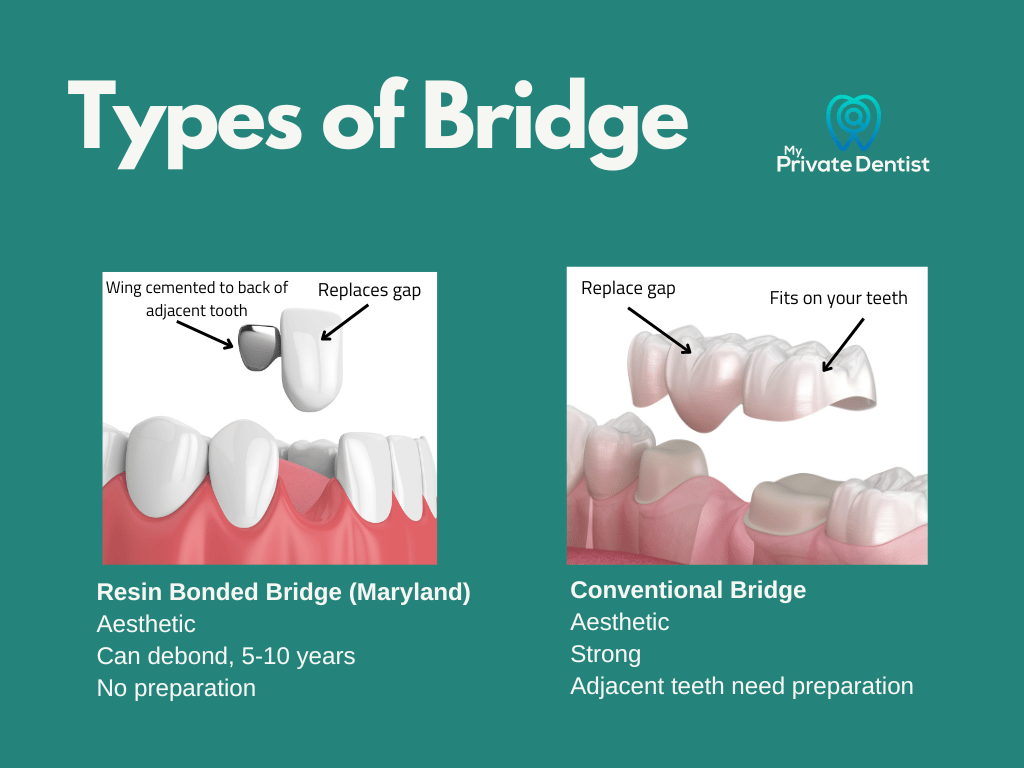
Conventional bridge
How conventional bridges work
The process of getting a dental bridge involves several steps:
- Preparation of the abutment tooth: A suitable adjacent tooth is identified as the abutment tooth, which supports the bridge. The abutment tooth is then prepared for a crown by smoothing down the sides and top of the tooth by 0.5-2mm, depending on the type of crown to be placed.
- Taking impressions: Impressions are taken of both the prepared tooth and the gap, and sent to a dental laboratory, where the bridge is custom-made.
- Fitting the bridge: The bridge is then attached to the abutment tooth or teeth using dental cement.
Advantages of a conventional bridge
A conventional dental bridge has several advantages for tooth replacement:
- Protects abutment teeth: If the abutment tooth has a large restoration already, conventional bridges protect the underlying tooth from fracture.
- Minimal bulk: A conventional bridge is not bulky in the mouth, and comfortable when in place
- Aesthetic appearance: Bridges made from zirconia or porcelain, are shade-matched to blend in with the patient’s natural teeth.
- Fixed restoration: Unlike removable dentures, a conventional bridge are cemented securely into place and should not move
Limitations of a conventional bridge
There are also some limitations to consider:
- Timing: A dental bridge is not suitable as an immediate replacement after a tooth is lost, as the gum and underlying bone can change shape after an extraction. It is advised to wait 3-6 months for bony healing before having a bridge placed.
- Suitable abutment tooth: A bridge depends on having a suitable abutment tooth to support it. An abutment tooth that has been root canal treated or wobbly due to gum (periodontal) disease is not strong enough to support a bridge, and is likely to fail.
- Preparation of abutment teeth: To place a conventional bridge, the adjacent teeth need to be prepared. Any time a drill is taken to a tooth, there is a risk of complications such as sensitivity, or damage to dental nerve.
- Increased load on abutment tooth: With a bridge, the load of two teeth is placed on a single tooth. This can cause the prepared tooth to break and may require further treatment, such as root canal therapy or extraction.
Who shouldn’t have conventional bridges
While a conventional dental bridge can be a suitable option for many people, there are some situations in which it may not be recommended. These include:
- Insufficient tooth structure: To place a bridge, adjacent teeth should be healthy. If there is not enough tooth structure to support a bridge, conventional bridges are not suitable.
- Poor oral hygiene: If a patient is unable or unwilling to maintain good oral hygiene, a bridge is not recommended.
- Unhealthy gums and bone: If a patient has gum disease or bone loss, a bridge may not be recommended.
- Bruxism (teeth grinding): If a grinds or clenched their teeth, a bridge may not be recommended as it can put additional stress on the abutment teeth.
- Multiple missing teeth: If you have a long span of missing teeth, alternate teeth replacement options such as implants or dentures are more suitable.
How long will a conventional bridge last?
A conventional dental bridge can last for many years if it is well-cared for.
An ideal bridge design using one or two abutment teeth to support a single missing tooth. Longer span bridges, replacing multiple missing teeth, are more likely to fail.
Maintaining good oral hygiene is essential. To clean underneath a bridge, superfloss can be used. Superfloss is a type of dental floss that has a stiff end that can be threaded under the bridge and between the abutment teeth. This can help to remove any food particles or plaque that may be trapped underneath the bridge.
If an abutment tooth becomes decayed, the bridge may fail. Preventing tooth decay through good oral hygiene and a healthy diet can help to preserve the tooth and the bridge.
Cost
In the UK, the cost of a dental bridge can range from around £400 to £1000. The price depends on the materials used and the number of teeth involved.
For example, porcelain-fused-to-metal bridges tend to be less expensive than all-ceramic or zirconia bridges.
Resin-retained or maryland bridge
How they work.
A resin-retained or Maryland bridge does not require preparation of adjacent teeth, unlike a conventional bridge
A resin-retained bridge consists of a false tooth that is attached to a metal retainer wing. This metal wing is bonded to the back of a suitable adjacent tooth, to fill in a space.
Advantages
A resin-retained or Maryland bridge has some advantages as a tooth replacement option.
- They are fixed, and non bulky
- Unlike conventional bridges, Maryland bridges require no preparation of the adjacent teeth.
- Maryland bridges can be made from tooth-coloured materials that blend in with the natural teeth.
- The placement of a resin-retained bridge is a quick and easy procedure that can usually be completed in two visits to the dentist.
Limitations.
While resin-retained or Maryland bridges have several advantages, there are also some limitations to consider:
- Oral hygiene: Good oral hygiene is essential for maintaining a resin-retained bridge. Plaque and food debris can build up behind the metal wing, causing decay or gum disease.
- Limited durability: Resin-retained bridges are generally not as strong or durable as conventional bridges, and they may need to be replaced or repaired over time. This is especially true if the patient has a history of grinding or clenching their teeth, which can put additional stress on the bridge.
- Abutment teeth must have enough enamel: The success of a resin-retained bridge relies on the strength of the dental cement bonding the metal wing to the abutment tooth. If the abutment tooth doesn’t have enough enamel, the bond may not be as strong, and the bridge may be more likely to fail.
- Position in the mouth matters: Resin-retained bridges are not recommended for areas where a lot of force is placed on the bridge, such as the back of the mouth. The further back the missing teeth are, the more force they will experience during chewing and biting. This can put more stress on the bridge and increase the risk of failure. In such cases, a conventional bridge or dental implant may be a better option.
- Limited span: Resin-retained bridges are typically used to replace a single missing tooth, they are not suitable for larger gaps or areas where multiple teeth are missing.
How long do resin-retained bridges last?
The lifespan of a Maryland bridge can vary depending on oral hygiene habits, the strength of the dental cement used, and the position of the bridge in your mouth.
On average, a well-maintained resin-retained bridge can last anywhere from 5 to 15 years.
Cost
On average, the cost of a single unit resin-bonded bridge can range from £400 to £800. It’s important to note that this cost is only an estimate, and the final cost can vary depending on complexity of the case.
Dentures
Dentures are a removable tooth replacement option. Partial dentures replace one or several teeth, and complete dentures replace all teeth in an arch. Sometimes called false teeth, dentures are made from acrylic or cobalt chrome, and are a versatile and affordable option. Although they have lots of advantages, dentures may require regular adjustments and can affect speech and eating. It is important to discuss the pros and cons with a dentist before opting for this treatment.
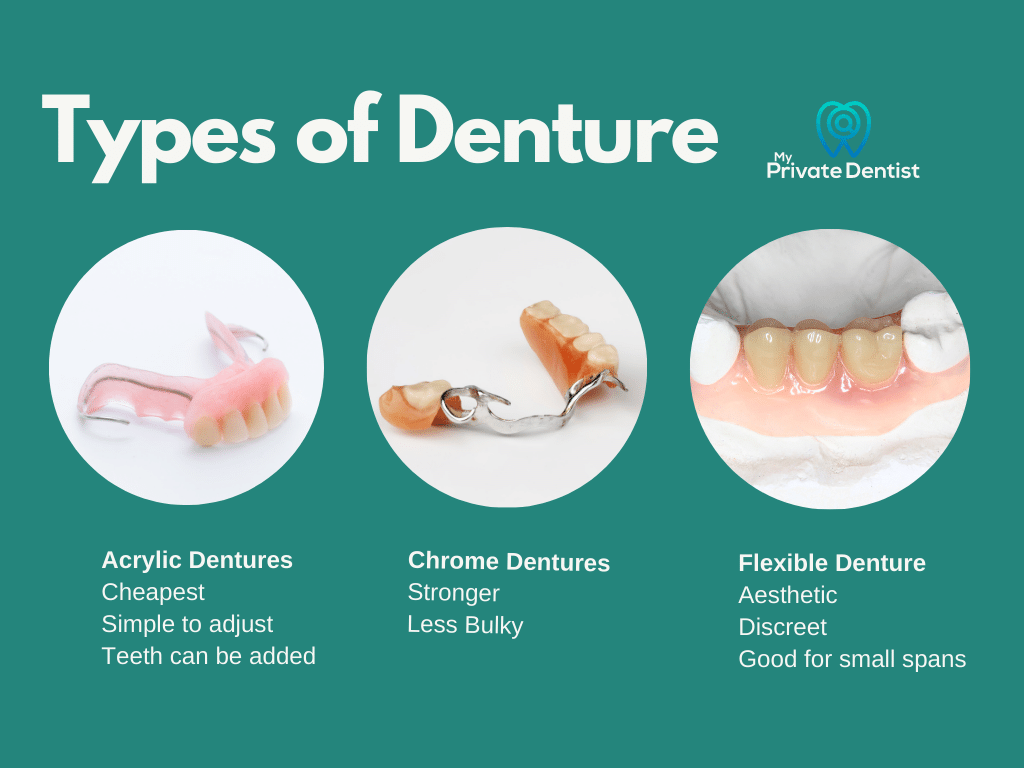
How they work
Dentures are typically made over 4-5 appointments, and a formed to fit closely to your gums and existing teeth. As a removable option, dentures rely on suction and a close fit to stay in place, and may require adjustments to maintain their fit over time.
5 main types of denture:
- Acrylic denture: These are the most common. An upper acrylic denture extends over the palate to help keep it in place.
- Cobalt chrome denture: Has a cobalt chrome framework for additional strength and support, and metal clasps to help keep it secure. Is less bulky, but can be heavier than an acrylic denture.
- Flexible denture. Less rigid than a traditional acrylic/chrome denture, and useful for a small span of missing teeth on one side of your mouth. Read about flexible dentures, as an option for tooth replacement.
- Implant supported denture: These are more stable and durable than traditional dentures
- Immediate denture: Usually made of acrylic, these can be made as a quick replacement after losing a tooth. It is usually provided straight after an extraction, to avoid having a visible gap in your smile.
Advantages of dentures
Dentures are a versatile tooth replacement option, with many indications. These include:
For individuals who are edentulous, meaning they have lost all of their teeth, complete dentures made of acrylic or cobalt chrome are an effective option. They can replace all of the missing teeth in an arch, providing a natural-looking smile and restoring the ability to eat and speak comfortably.
Immediate dentures can be made in a week, providing a quick option to temporarily replace a lost tooth and avoid a visible gap. After an extraction, the gum and underlying bone changes shape over 3-6 months as the area heals, and will need adjusting or repairing after the healing process.
Dentures are relatively inexpensive, compared to bridges and implants. Some patients have a denture as a temporary replacement for missing teeth, whilst saving for more alternative long-term options.
For patients with multiple wobbly teeth that have never worn a denture before, transition dentures are an excellent option. They are small dentures that can easily have more teeth added on it, as teeth fail.
Dentures are simple to adjust or repair.
Limitations of a denture
The most obvious downside to having a denture is that it is removable. It is not fixed inside your mouth, and needs to be taken out for cleaning and sleeping.
A new denture can take some time to get used to, and can feel bulky in your mouth initially. It may also have some high spots and dig in, though this can usually be adjusted to comfort by your dentist.
If a denture is ill-fitting, or if your jaw bone is heavily resorbed, it may lift and move when you’re eating and speaking. This can be a worry for some, who may not want it to be noticeable to others.
It is important to take your denture out at night and soak it in a mild cleansing solution. If not taken out, you may be prone to soreness or infection on the denture bearing surfaces of your gums.
It is also important to maintain good oral hygiene when wearing a denture, as they can trap plaque and make any gum issues worse.
Who shouldn’t have a denture
While dentures can be a viable option for many people who have lost some or all of their teeth, there are certain individuals who may not be good candidates for dentures. Here are some examples:
- People with poor oral health: If a person’s gums and remaining teeth are in poor condition, dentures may make gum issues worse.
- Individuals with dry mouth: People with conditions that cause dry mouth (xerostomia) may find that dentures uncomfortable. Dry mouth can make it difficult to keep dentures in place, and the lack of saliva can cause irritation and discomfort.
- People with certain medical conditions: Certain medical conditions may make it difficult for someone to wear dentures. For example, people with Parkinson’s disease may have trouble controlling their tongue and facial muscles, making it difficult to keep dentures in place. Patients with uncontrolled epilepsy may be more prone to injury or breaking their dentures during a seizure, and may be better suited to a fixed prosthesis.
- People with a strong gag reflex: Some people may have a prominent gag reflex, which can make wearing dentures uncomfortable or even impossible.
How long do dentures last?
The lifespan of dentures can vary depending on a variety of factors, including the type of dentures, how well they are cared for, and how much they are used. With proper care, you would expect dentures to last 8-10 years.
It’s important to keep in mind that dentures will eventually need to be replaced due to normal wear and tear, changes in the shape of the mouth, or other factors. Additionally, as dentures age, they may not fit as well, which can cause discomfort or make it difficult to eat and speak. Regular check-ups with a dentist or prosthodontist can help ensure that dentures are functioning properly and can help detect any issues early on.
How much do dentures cost?
The cost of dentures in the UK can vary depending on a number of factors, including the type of dentures, the materials used, and the complexity of the case. Here are some rough estimates of the cost of dentures in the UK:
- Full set of conventional acrylic dentures: £500 – £1,500 per arch
- Partial acrylic dentures: £200 – £1,000
- Chrome cobalt dentures (partial or full): £700 – £2,000 per arch
- Flexible dentures: £400 – £2000 per arch
- Implant-supported dentures: £2,500 – £5,000 per arch
It’s important to note that these are rough estimates and the actual cost may be higher or lower depending on the individual case. Additionally, the cost of dentures may be covered by the NHS. Patients should consult with their dentist or prosthodontist for a more accurate estimate of the cost of dentures.
Frequently Asked Questions about tooth replacement
What are my options for replacing a single missing tooth?
If you have a single missing tooth, there are several options available for replacement. Considering where the single missing tooth is in your mouth, options may include:
- Flexible denture: This is a removable partial denture that is made of a flexible material instead of rigid acrylic. Flexible dentures can be made smaller and therefore be more comfortable than traditional dentures. Learn more about flexible dentures.
- Dental bridge: A good option if the adjacent teeth are strong and healthy
- Dental implant: This is considered the closest option to a natural tooth and is a long-lasting solution for single tooth replacement.
What are my options for replacing a front tooth?
A missing front tooth can affect your appearance and self-confidence. There are several options available for a gap at the front of your mouth, including:
- Denture: Could be used as a defintive option, or a temporary solution to fill the gap while you wait for a more permanent solution. Dentures may not be as stable or comfortable as other options.
- Dental implant: This is a popular and long-lasting solution for front tooth replacement.
- Dental bridge: A fixed option, using an adjacent tooth to replace a missing one
Your dentist can help you decide which option is best for you based on your individual circumstances and budget. Factors such as bone density, gum health, and the condition of adjacent teeth may influence your choice of treatment.
In general, dental implants are considered the most natural-looking and durable option for front tooth replacement. However, they can be more expensive than other options and may require several appointments over several months. A dental bridge can be a good alternative if cost is a concern and if the adjacent teeth are strong enough to support the bridge.
Can I get dental implants on the NHS?
In the UK, dental implants are generally not available on the NHS, except in rare circumstances, such as if they are deemed necessary due to trauma or certain medical conditions.
If you are considering dental implants, you will need to seek treatment privately. It’s important to find an implant dentist with a good level of experience and expertise, as not all dentists perform this procedure. Find an implant dentist here.
Dental implants can be expensive, but are a long-term investment in your oral health and quality of life. Your implant dentist can provide you with a detailed treatment plan and cost estimate, and may offer financing options to help make the treatment more affordable.
I have really bad teeth what are my options UK
If you’re worried about the condition of your teeth, it’s important to visit a dentist A dentist can assess the severity of your condition and provide a tailored treatment plan to help improve your oral health.
In addition to seeking professional care, maintain a good oral hygiene regime at home. This includes brushing with an electric toothbrush and fluoride toothpaste twice a day, and flossing at least once daily. Keeping your mouth as clean as possible will reduce the risk of dental issues, and also helps to improve the effectiveness of any treatment plan that your dentist recommends.
Your treatment plan may involve short-term solutions to address immediate dental issues, such as fillings or extractions, as well as long-term goals to improve your overall oral health. Your dentist may also provide advice on lifestyle changes, such as quitting smoking or improving your diet, to help prevent future dental problems.
Remember, early intervention and regular dental check-ups can help prevent dental problems from becoming more serious and expensive to treat in the long run.
What is the cheapest way to replace teeth?
Cost may be a concern when considering tooth replacement. The most affordable option is a denture. Although not a fixed prosthesis, dentures are a good option for replacing multiple teeth. You could also consider a temporary or immediate denture as a space maintainer while you save up for a more permanent solution like an implant.
Many dental practices offer financing options to help spread out the cost of treatment over time. It’s worth checking with your insurance provider to see if tooth replacement is covered in your plan.
Overall, it’s important to remember that the cheapest option may not always be the best long-term solution for your oral health. Discuss all your options with a dentist and consider the long-term benefits and drawbacks of each before making a decision.
What should I do now?
If you’re looking for replacement teeth its best to find a prosthodontist who can help you with implants, bridges and dentures.


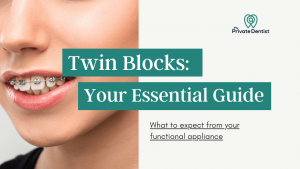
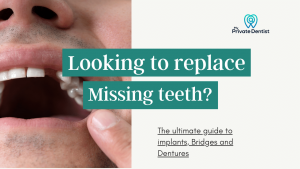
1 Comment
Luke Smith
January 9, 2024It’s nice that you pointed out how there are 3 main options available when it comes to tooth replacement. I am already missing a few teeth, so I think I should start looking into tooth replacement procedures. I do not know the best choice, so I’ll try to consult with a dentist.
https://otsegodental.com/family-dentistry/#restoration-dentistry